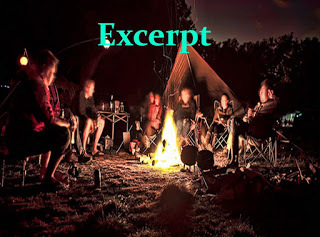K.C. Sprayberry's Blog, page 119
November 8, 2017
Dialogue

Good morning and welcome to wwwblogs. Today we’re talking about dialogue. We’ll discuss what to do and what not to do when our characters are speaking.
We’ve already discussed dumping information in large paragraphs that isn’t relevant to the current s scene and leading the reader by the nose with stage directions. Today, we’re going to look at information stuffed into dialogue that’s often stiff and unreal.
One thing readers love about books is dialogue that’s natural and fits the situation. They enjoy the engagement between characters and watching a scene evolve as if they’re standing on the sidelines watching everything happen.
What a reader doesn’t like is getting a ton of unnecessary information in the dialogue that can be better handled in narrative. For example…
“Did you see Kat this morning?” Sissy asked. “She’s such a skank. As if it’s not horrible that she has hair that’s seven different colors: red, green, black, blue, orange, turquoise, and yellow, she is wearing the worst outfit in the world!”
“I know,” Jessie said. “Who would ever put on a gray and gold plaid skirt with a red and green stripped shirt? To make everything look clunkier, she had to come to school in that stupid black sweater with her breakfast spilled all over it and those dumb biker boots.”
“Totally!” Sissy exclaimed. “And did you see how her house looks since the fire. How can anyone live in a place where the garage and one of the bedrooms have been destroyed? I have to walk past that place every day on my way to the bus. It’s been six months since the fire and they haven’t done anythingto fix it. It’s like this huge ugly scar that’s making the whole neighborhood look like trashy people live there.”
“What about her parents?” Jessie asked. “They are sooooo old and they act like they’re teenagers. I’d be embarrassed so bad if my parents showed up at school in biker leathers with long hair nearly down to their butts. How can anyone let their parents act so dumb?”
“SHHHH!” Sissy giggled. “There she is.” Her voice dropped to a dramatic whisper. “Do you think she knows we are talking about her?”
Okay, we learned a lot about Kat. Far too much for someone to be discussing. In this instance, most of this dialogue should be shown from the main character’s viewpoint, while the narrative centers around less descriptive vignettes about her life.
Sissy meandered along the hallway with her best friend, Jessie. They only had a few minutes to make it homeroom. A door opened at the far end of the hall and Kat Stevens stepped in. Sissy hissed in a breath. She immediately checked out her outfit, to ensure it was as great as it had been when she put it on earlier.
Neat khaki slacks, a tunic that came down to mid-thigh, and sneakers. Check. Pretty much the same thing everyone else at school wore. No way was she going to stand out from the crowd.
“Is she really wearing that?” Jessie whispered. “It’s awful.”
Sissy had to agree. In her opinion, Kat stood out enough with all the streaks in her hair. The colors alone clashed badly: red, green, black, blue, orange, turquoise, and yellow. But that gray and gold plaid skirt with a red and green striped shirt was horrible. Add in her food stained sweater and a pair of biker boots and Kat was headed for fashion hell.
Of course, no one would say anything to Kat about her faux pas. Her family had the worst luck lately. Six months ago, their garage caught fire and burned her parents’ bedroom above it. Their Harley Davidson motorcycles were destroyed and then the insurance refused to pay, so they had to hire a lawyer. Kat was whispered about by everyone in school.
“Wish we could help her fix her outfit,” Sissy said, a bit sadly. Her parents always lectured her about being kind to others. “She’d look a lot better if the blouse wasn’t striped, or the skirt matched the red and green.”
One way to ensure your dialogue is not dumping information is to spend time in crowded places and listen to how people talk. When setting up dialogues in your books, remember those moments. They will serve you well in your writing.

About K.C. Sprayberry
Born and raised in Southern California’s Los Angeles basin, K.C. Sprayberry spent years traveling the United States and Europe while in the Air Force before settling in northwest Georgia. A new empty nester with her husband of more than twenty years, she spends her days figuring out new ways to torment her characters and coming up with innovative tales from the South and beyond.
She’s a multi-genre author who comes up with ideas from the strangest sources. Those who know her best will tell you that nothing is safe or sacred when she is observing real life. In fact, she considers any situation she witnesses as fair game when plotting a new story.
Website
Goodreads
Amazon Author Page
Google +
Manic Readers
AUTHORSdb
Readers Gazette
Authors Den
Published on November 08, 2017 09:52
November 7, 2017
Family Destruction

Welcome to Tuesday Blog Share. Today we’re talking about the destruction of a family. This can happen in many ways, and the family is left bereft, unable to function, with the remaining members looking for a direction in a seemingly endless sea of unhappiness.
Divorce in the twenty-first century happens so often most people don’t attach any stigma to it. A marriage has failed, the partners move on, and no one is really affected deeply. At one time, not so long ago, a divorce was whispered about. The adults who had decided to end their marriage were involved in a fight in a courtroom, where they made all sorts of accusations at each other: “He’s running around with bimbos.” “She’s crazy as a loon.” The process was long and drawn out. Children caught up in these battles were often at the wayside, not comprehending why their parents were saying these things and often feeling lost.
Blurb
Will Melinda discover her inner strength?
Melinda grew up in a staunchly Catholic family. At sixteen, she’s in the throes of first love when her family falls apart. Dad takes off with his secretary, abandoning the family he professed to love. Mom has trouble processing what’s happening to her home.
Melinda is a daddy’s girl, the tomboy but also pretty enough to be sought after by a guy she adores. In the blink of an eye, she feels as if she’s losing the strong faith she believed her family had and her prayers aren’t being answered.
Set against the backdrop of the turbulent sixties, Bright Shining delves into the life of a teen with two possible choices—remain with what she’s always known in her faith or be caught up in the drugs and criminal underworld that has consumed so many teens. Will she make the right choice?
Excerpt
Rough hands shook me awake. I rubbed my eyes and sat up. The first thing I noticed was that I was outside and it was very dark.
“We have to go, Melinda,” Tony said. “Hurry. It’s late. We’re going to be in so much trouble.”
I scrambled to my feet and attempted to brush the grass stains off my pretty mini-skirt. Glancing around, I noticed that no one else was in Library Park. We were alone. I had vague memories of others being here, a party of some sort, but the details were clouded.
“What happened?” I asked.
“We fell asleep.” He pulled me to my feet. “It’s past eleven. The others are already gone.”
My first thought at that point was that in 1965, good girls didn’t fall asleep with the guy they were dating in a park on a Friday night. My second thought was that I had to get home—now!

About K.C. Sprayberry
Born and raised in Southern California’s Los Angeles basin, K.C. Sprayberry spent years traveling the United States and Europe while in the Air Force before settling in northwest Georgia. A new empty nester with her husband of more than twenty years, she spends her days figuring out new ways to torment her characters and coming up with innovative tales from the South and beyond. She’s a multi-genre author who comes up with ideas from the strangest sources. Those who know her best will tell you that nothing is safe or sacred when she is observing real life. In fact, she considers any situation she witnesses as fair game when plotting a new story.
Website
Goodreads
Amazon Author Page
Google +
Manic Readers
AUTHORSdb
Readers Gazette
Authors Den
Published on November 07, 2017 00:00
November 6, 2017
Stage Directions

Today on Monday Blogs we’re talking about showing not telling a reader a story. Or rather the stage directions that are creeping into new books.
Show don’t tell. Authors can’t hear this enough. We aren’t supposed to tell a reader a story; we show them the story. That makes our books more memorable, a better adventure for the reader. And we all want to give the reader a better experience, so they’ll buy more of our books.
However, I’ve noticed recently that new authors are using stage directions to point the reader in the right direction. Just what are stage directions?
Imagine reading a story. It’s pretty good. You’re more than mildly interested, until you hit a point where the author pops out “Then they turned north onto Summer Street, followed by a turn into Main Street. Now, the driver pointed at the edifice at the other end of the street. “That’s where you’re going. Are you sure?”
Yup, you just told the reader what’s happening rather than showing them. This is like an irresistible urge. Some authors can’t resist that moment, when instead of painting a picture showing the reader what’s happening, they tell them. After all, this is just a short moment, not even really a major plot point. We’ll just get it over with.
A better way to show the reader would be something like: The cab meandered along Summer Street. We checked out the houses on both sides of the road. All of them were modern versions of the same design, with very few differences. A screech of brakes turned our attention toward the red light keeping us from moving forward. Once the light turned to green, the cabbie raced around the corner and drove along Main Street. His shaky finger pinpointed a monstrosity sitting on a hill about a mile ahead of us. My brother and I glanced at each other. Dread rose within me. That house, if one could call it a house, towered over the town. Instead of a modern, clean exterior, the windows were cracked, a door under a portico hung on only one hinge. The grass was at least waist high behind a rusty iron fence and gate. “That be Marley Manor,” the driver said in a fearful voice. “Are you sure you want to go there?”
The difference in the two paragraphs stands out. In the first, you aren’t creating any tension. The reader is being told where they’re traveling and that they see a house. Nothing else. In the second paragraph, you are treated to a visual journey to a place that holds secrets, but what kind of secrets and why is that house still standing when it’s so very different from every other home in the area?
Remember this when you are tempted to use stage directions to tell your reader what’s happening. With just a few more words, you can paint a vivid picture of a scene that will take them further into your book.

About K.C. Sprayberry
Born and raised in Southern California’s Los Angeles basin, K.C. Sprayberry spent years traveling the United States and Europe while in the Air Force before settling in northwest Georgia. A new empty nester with her husband of more than twenty years, she spends her days figuring out new ways to torment her characters and coming up with innovative tales from the South and beyond.
She’s a multi-genre author who comes up with ideas from the strangest sources. Those who know her best will tell you that nothing is safe or sacred when she is observing real life. In fact, she considers any situation she witnesses as fair game when plotting a new story.
Website
Goodreads
Amazon Author Page
Google +
Manic Readers
AUTHORSdb
Readers Gazette
Published on November 06, 2017 00:00
November 5, 2017
A Wish

Welcome to Sunday Blog Share. All month long and through December, we’re focusing on books that have a holiday of spirit as part of the Holiday of Books promotion.
Today, we’re going to be talking about how the power of belief can help a teen through a troubling time. Our story today is about a young woman in the throes of her first crush but is afraid for her mom to know. This is so typical of girls, not just for today’s teen but for teens throughout history.
 Get One More Christmas on Amazon!
Get One More Christmas on Amazon!Dawn has known for a while that something isn’t right with her mom. She’s not sure what it is and believes this may be the normal mother/daughter teenage issue. To discover Mom has a disease that will soon take her from her family has Dawn praying fervently for the chance of just one more Christmas.

One more Christmas is all Dawn wants. Is that too much to ask?
With a little more than a week before the holiday, fifteen-year old Dawn and her dad share a heart-wrenching secret about her mom. She’s dying of leukemia, but no one suspected a thing; they all just thought she was tired. All Dawn has to lean on is a prayer—that her mom won’t die before or on this special day, so her five younger siblings don’t have to remember that during the holidays in the future. Will she receive her wish?

Robby Ryan got off the bus ahead of me. Not that I was that far behind him. We had the whole walk home, about a quarter mile on paved sidewalks, and no reason to hurry. He stopped and glanced at me, a sly smile on his face.
“Come on, Dawn. Quit being a slowpoke.”
We’d had a sort-of-friends relationship all our lives. He lived across the street and a few houses up from me in our little hometown of Monrovia, California. Robby was an older man, all of seventeen. I was fifteen for a couple more months, and that was the worst age to be in 1974. My parents were so old fashioned, saying I couldn’t even think about having a real boyfriend until I was sixteen—in February.
About K.C. Sprayberry

Born and raised in Southern California’s Los Angeles basin, K.C. Sprayberry spent years traveling the United States and Europe while in the Air Force before settling in northwest Georgia. A new empty nester with her husband of more than twenty years, she spends her days figuring out new ways to torment her characters and coming up with innovative tales from the South and beyond.
She’s a multi-genre author who comes up with ideas from the strangest sources. Those who know her best will tell you that nothing is safe or sacred when she is observing real life. In fact, she considers any situation she witnesses as fair game when plotting a new story.
Website
Goodreads
Amazon Author Page
Google +
Manic Readers
AUTHORSdb
Readers Gazette
Authors Den
Published on November 05, 2017 01:00
November 4, 2017
Walks With Him by Elle Marlow
Website


Moves The Wind…is how the Comanche describe a stallion that eludes capture. It is said that the beast is both horse and spirit, running free between this world and the next. To ride this horse is the greatest desire among men—until she came into their world. Abandoned in the wilds with sickly baby sister, Ivy wanders into the path of Comanche out on the chase. He is terrifying with his long hair and body made from the granite cliffs that surrounds them, but she needs him to save her sister’s life. The Comanche name her Walks With Him, and her beauty has started a war from within. One man wants to enslave her, the other wants to win her heart and set her free. The price is impossible. The first brother to capture the special horse will get the woman. The real prize is who the woman gives of herself. Her name is Walks With Him and this is her story.
Excerpt: He considered Ivy as he allowed his gaze to roam over her. Her concern for her sister was admirable, her skepticism of love mirrored his own. She stood before him, her hair long and loose. Her fine features and round green eyes told of a woman that was delicate on the outside but made of tougher things on the inside. It was an attractive combination. It was inappropriate to openly stare, but he couldn’t help himself. Rio was a larger woman, and so her buckskins hung loose on Ivy, but even that did not hide the curves that laid underneath. Curves that kept him awake at night. Yamka talks of Baby Deer’s beauty, but in his eyes, Ivy was the one who was most beautiful in both looks and in strength. Even now, when she was so clearly tired from the hard work, and to this strange new life she found herself in, she carried herself tall. In her, he saw the things that mattered. his body honed into her every move as if she were something he’d spent days hunting. He’d never experienced such an awareness in another person. However, the likelihood of anything more than him being able to admire her was slim. A prize like Ivy would end up with the son of a council member or a council elder himself.
Author Bio

Thank you, for hosting me on your blog today. I am very excited to introduce to you my latest historical Native romance, Walks With Him-Comanche Bride. About Me: Hello! My name is Elle Marlow and I am a proud born and raised Arizona girl. I feel blessed to live in the southwest where I get to enjoy the beautiful Sonoran Desert, ghost towns, horses and most importantly, cowboys! I have a wonderful husband and so many kids that the old lady in the shoe has nothing on me. I love to write about the west and it gives me a darn good excuse to get out and explore.
You can find me and stay updated at www.ElleMarlow.Blogspot.com Follow my Amazon Author page: https://www.amazon.com/Elle-Marlow/e/B00IDC61A0/ref=sr_ntt_srch_lnk_2?qid=1509462655&sr=1-2 Or on Twitter: https://twitter.com/ElleMarlowWrite
Published on November 04, 2017 02:57
November 1, 2017
Drama 4 Us

Welcome to wwwblogs. Today’s discussion centers around the current trend of dramatic statements on social media done for one purpose only—to create dissension and ugly discussions.
We’ve all seen the posts. They’re slam against slam against a political candidate, one religion or another, or an individual because of their ancestry. The discussions are heavy on argument and light on facts. It’s very difficult to remain disengaged. Either the post strikes us at a level that’s a deep belief or one we think is a way to further divide people.
That’s when you see it—a post that strikes at some of your deepest held beliefs. Your ire rises. There is no way you are going to pass this one by. The very vitriolic anger being slammed against what you believe in cannot be allowed to continue.
Stop.
Step away from the keyboard.
Think. Think very hard about all the work you’ve done day and night to brand your name as a reputable author. Your books have some sales; not many but they’re steadily increasing. Your fan base is being populated by people who like your books, people who hold very differing beliefs. Some may agree with you; others will find you standing against a cause they support as a reason not just to stop reading your books but also to ensure as many other of your readers as possible drop you.
Can’t possibly happen you say.
Ask any of the number of authors who have experienced this phenomena I counter. Responding in any way at all can and will hurt your as an author. Your best bet is to move on past. If you’ve been tagged in the post, because the individual posting believes you are a real good virtual friend and will of course agree with their stance, still ignore it and quietly PM this person to ask they not do that again. They might have questions. Your only response should be that you have fans of differing beliefs and prefer to remain quiet on anything that is the least divisive.
You might lose a few friends over this type of approach. Their absence might hurt for a while, as you had a lot in common, but when you get your next royalty payment, I’m sure you’ll be grateful you didn’t respond to that post.
About K.C. Sprayberry

Born and raised in Southern California’s Los Angeles basin, K.C. Sprayberry spent years traveling the United States and Europe while in the Air Force before settling in northwest Georgia. A new empty nester with her husband of more than twenty years, she spends her days figuring out new ways to torment her characters and coming up with innovative tales from the South and beyond.
She’s a multi-genre author who comes up with ideas from the strangest sources. Those who know her best will tell you that nothing is safe or sacred when she is observing real life. In fact, she considers any situation she witnesses as fair game when plotting a new story.
Website
Goodreads
Amazon Author Page
Google +
Manic Readers
AUTHORSdb
Readers Gazette
Authors Den
Published on November 01, 2017 00:00
October 31, 2017
Nature or Gods Interfering

Welcome to Tuesday Blog Share. Today, we’re talking about a tale that seems improbable. Teens have a lot of obstacles to overcome in their lives, but none expect Norse Gods to be the cause of those problems.

Get Eerie Waters on Amazon
Gods at play; humans at risk. Jessie isn’t very happy with her life in Homer, Alaska. She is really tired of fish at every meal and how they’re always having to take tourists out in the early hours of the morning on fishing expeditions… until she meets a totally hot guy.
Blurb
March 27, 1964, a 9.2 earthquake devastated Alaska and brought a tsunami that did further damage. Odin accepted his responsibility for this disaster and made a promise to Thor that he would never do such a thing again.
Fifty-three years later, Thor learns his father has returned to Homer, Alaska and is yet again in a destructive mood. What makes matters worse are two teens, Jessie and Jason Sørenson, are related to the Hnickar that continually entices Odin into being destructive.
Can Thor, Jessie, and Jason stop Odin and his Hnickar friend? Will another disastrous earthquake and tsunami finish the destruction begun more than half a century later?
Excerpt
He stood upon the sandy beach, the last rumblings of a devastating earthquake moving far off into the interior. Odin, King of the Norse Gods, shook his head in shame. He was responsible for this travesty and had no way to make reparations.
“Sir.” A man approached him cautiously, followed by a boy of about eighteen years of age. “Are you all right? I saw you tossed from the sea. Were you on a boat that was capsized by the earthquake?”
Both humans wore shocked expressions. The earthquake had been massive, registering at 9.2 on the Richter scale. Many homes had been damaged but Odin didn’t sense any wailing for the dead. Although, from what else he was sensing, that would soon happen and he couldn’t do anything about it—because he was partially the source of this disaster.
About K.C. Sprayberry
Born and raised in Southern California’s Los Angeles basin, K.C. Sprayberry spent years traveling the United States and Europe while in the Air Force before settling in northwest Georgia. A new empty nester with her husband of more than twenty years, she spends her days figuring out new ways to torment her characters and coming up with innovative tales from the South and beyond.
She’s a multi-genre author who comes up with ideas from the strangest sources. Those who know her best will tell you that nothing is safe or sacred when she is observing real life. In fact, she considers any situation she witnesses as fair game when plotting a new story.
Website
Goodreads
Amazon Author Page
Google +
Manic Readers
AUTHORSdb
Readers Gazette
Authors Den
Published on October 31, 2017 02:54
October 30, 2017
It’s Your Book

Every author faces the same problem when presented with the blank page of a new book. We have the title on there. Our name or pseudonym is beneath that. Chapter One is typed out. We’re on the first line of where we should start our book and…
Our mind just blanked. That story we’d been dreaming about, hearing in our head, being interrupted while we’re out with friends has just vanished. We type a few lame sentences. Backspace furiously. Try again.
Nothing. The tale has vanished. Our muse is sitting on our shoulder snickering and whispering, “Told you that you should have done this earlier, when you were cooking supper, spending time with the kids, or running around with friends. You are in so much trouble. I gave you a fabulous story and you ignored me. Suffer!”
Oh, that muse has done that on many occasions. She’ll be croaking out laughter and teasing me with two word tidbits that I have no clue where they belong. Even a glass of wine doesn’t shut up that irritating muse.
My best cure for the blank page blues is to close the document I’ve just started and open one that I need to edit. I’m no more than a dozen or so pages into this intense process when WHAM! That muse has just slapped me between the eyes and the story is running through my head at hyperspeed. I can’t get that other document open fast enough and for an hour or ten, I’m happily plotting out mayhem for my characters.
For some people, going on social media and meeting their friends for talks about things not related to writing at all works. Others find physical exercise will unlock the brain.
One thing all of us will tell you when it comes to bringing back that story is this…
Never give up.

Born and raised in Southern California’s Los Angeles basin, K.C. Sprayberry spent years traveling the United States and Europe while in the Air Force before settling in northwest Georgia. A new empty nester with her husband of more than twenty years, she spends her days figuring out new ways to torment her characters and coming up with innovative tales from the South and beyond.
She’s a multi-genre author who comes up with ideas from the strangest sources. Those who know her best will tell you that nothing is safe or sacred when she is observing real life. In fact, she considers any situation she witnesses as fair game when plotting a new story.
Website
Goodreads
Amazon Author Page
Google +
Manic Readers AUTHORSdb Readers Gazette Authors Den Instagram
Published on October 30, 2017 00:00
October 29, 2017
Family Secrets

Welcome to Sunday Blog Share. Today, we’re delving into the paranormal, as we will all month. Our story this fine October day is all about those pesky family secrets. Everyone’s family has them. Some are not so bad—an aunt or uncle with a habit no one thinks is very nice, sisters and brothers who are real jerks. There are, however, some families who never want the secret behind their family to ever see the light of day. Those secrets can do nothing but cause emotional pain and bring up things best left unsaid…

Get Secret From The Flames on Amazon!
Not long after motorcyclists rode to Washington DC to make a statement, Ciara Tressa Lafferty and her guy return home, jazzed by their experience and definitely not ready for what was about to be exposed. Her boyfriend is JD Turkin, heir apparent to the legacy set by his grandfather, Duke. Ciara and JD love each other and refuse to listen to their grandfathers, who both demand the teens stop going out.

Everyone pays for the mistakes of their family, but for Ciara Tressa Lafferty, that particular mistake happened almost sixty years ago, and nobody will forget it. She’s constantly compared to her great aunt, and even worse, she looks like the woman.
A senior in high school with a great future ahead of her, Ciara has no clue what this Halloween holds for her. That it’s the anniversary her great aunt’s disappearance is just one more annoyance as she discovers her boyfriend’s great grandfather refuses to let her move on with her own life. Then Ciara finds herself thrust in a nebulous existence within her own body when Tressa Anne Lafferty, her great aunt, possesses her. Ciara tries to break free, but Tressa refuses to release her untilCiara discovers the secret hidden within the charred remains of McLaren House--a revelation which will rock the whole town.

The sense of time gathers speed. For so long, she dwelled in limbo, awaiting the moment when she would reunite with him. He brings conflicting emotions. Tressa loved him, yet he killed her. Logic dictates that she must hate him.
Her death came about not because he loved her, but because he had to hide his acts, what he had done to ruin his family name.
Duke Turkin was incapable of caring about anyone but himself. The only things he really loved were power and money.
“It’s time, Duke,” Tressa whispered into the humid, velvety night air. “Can you feel it? I’ll make sure that you don’t escape me this time. We’re destined to spend eternity together.”

Born and raised in Southern California’s Los Angeles basin, K.C. Sprayberry spent years traveling the United States and Europe while in the Air Force before settling in northwest Georgia. A new empty nester with her husband of more than twenty years, she spends her days figuring out new ways to torment her characters and coming up with innovative tales from the South and beyond.
She’s a multi-genre author who comes up with ideas from the strangest sources. Those who know her best will tell you that nothing is safe or sacred when she is observing real life. In fact, she considers any situation she witnesses as fair game when plotting a new story.
Website
Goodreads
Amazon Author Page
Google +
Manic Readers
AUTHORSdb
Readers Gazette
Authors Den
Published on October 29, 2017 00:00
October 25, 2017
Beta Readers and Critique Groups

Good morning. Today on our wwwblogs we’re talking about the importance of having fresh eyes looking at your book before you submit or publish it. These eyes should be employed before an editor provided by your publisher or that you’ve hired has a chance to see your book. Although all authors do edit their books, we simply don’t have the skills necessary to be dispassionate about our work. This is why we should have a great critique group (online or one that meets locally) or beta readers who will give us a solid analysis of our work and what needs attention.
Let’s talk about the critique group first. Just what is this?
A critique group is comprised of authors who write in the same genre or who are a group that meshes well together. They can be online or be a group that meets locally at a library or coffee ship. The rules will vary. In some groups, everyone posts or shares every week. In others, a single person will share or post. The group will provide insight into the chapter or short story—what works and what doesn’t, and then the author knows where they need to improve their book.
The most important thing about a critique group is that everyone must be equal in their interaction. A single person demanding their work always be placed first or who is rude to others in critiquing their work can destroy the ambience of the group. People will drift away. They’ll refuse to work with this person. Eventually, the group will be gone and the authors who were part of it won’t want to be part of another group in the future.
This can be avoided with a strong moderator who holds everyone to the clear rules of the group. If that one individual leaves in a huff, it’s actually better for the other members. They can move forward and have an enjoyable experience while also getting invaluable feedback on their book.
Beta readers offer a different type of initial editing for the author. These are usually people the author knows but also trusts to look over a story with a critical eye. They will offer suggestions on improving characterization or point out plot holes. The author can use this feedback to fix problem areas before moving on and discovering as they’re near the end that Eddie wasn’t the guy Sue loved all along, and they have to go back to the beginning to fix everything.
Another bonus offered by these alternatives is when you submit to a publisher. Far too many authors now are writing a book and submitting, claiming the book has been seen by an editor and is “completely publication ready” only to have the submission manager discover numerous mistakes on the first page. That leaves a bad impression and the author will occasionally question why their work was rejected. The submission manager is now in a bad spot, where they have to tell the author bluntly that they need to do at least a spell check before submitting, but it would be better to have gone through the process of peer critique first.

Born and raised in Southern California’s Los Angeles basin, K.C. Sprayberry spent years traveling the United States and Europe while in the Air Force before settling in northwest Georgia. A new empty nester with her husband of more than twenty years, she spends her days figuring out new ways to torment her characters and coming up with innovative tales from the South and beyond.
She’s a multi-genre author who comes up with ideas from the strangest sources. Those who know her best will tell you that nothing is safe or sacred when she is observing real life. In fact, she considers any situation she witnesses as fair game when plotting a new story.
Website
Goodreads
Amazon Author Page
Google +
Manic Readers
AUTHORSdb
Readers Gazette
Authors Den
Published on October 25, 2017 00:00



